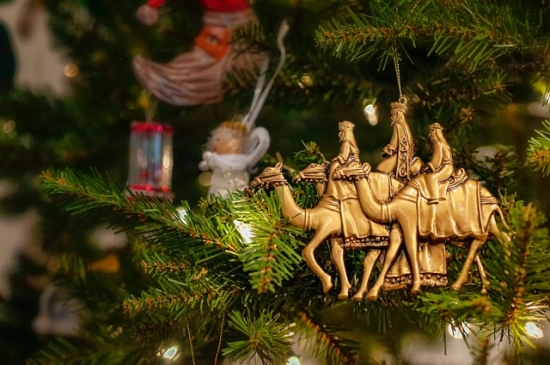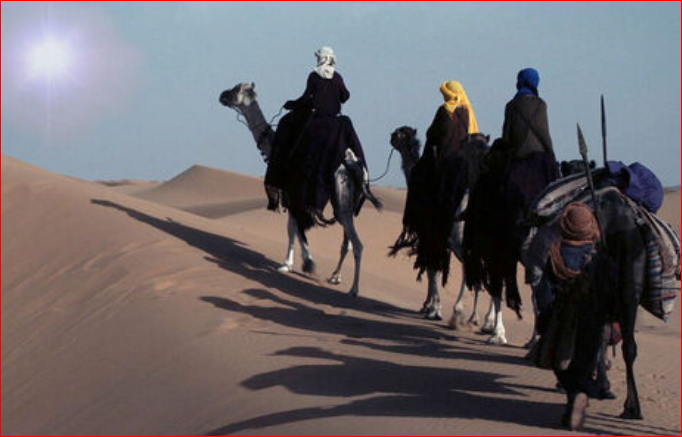1164. That 'Cush' or Ethiopia means interior cognitions of the Word by which people confirm false assumptions is clear in Jeremiah,
Egypt comes up like the river, and like the rivers the waters are tossed about; and he said, I will go up, I will cover the earth, I will destroy the city and those who dwell in it. Go up, O horses, and rage, O chariots, and let the mighty men go forth, Cush and Put that handle the shield. Jeremiah 46:8-9.
In this case 'Egypt' stands for people who believe nothing they do not grasp through facts. As a result everything is subject to doubt, denial and falsification, meant by 'rising up, covering the earth, and destroying the city'. Here 'Cush' stands for the more universal and interior cognitions of the Word by which they confirm accepted false assumptions. 'Put' stands for cognitions drawn from the literal sense of the Word which are based on sensory appearances.
[2] In Ezekiel,
A sword will come upon Egypt, and there will be grief in Cush when the slain 1
falls in Egypt; and they will take her multitude, and her foundations will be destroyed. Cush and Put and Lud and all of Ereb 2
and Kub, and the sons of the land of the covenant will fall with them by the sword. Ezekiel 30:4-6.
Except from the internal sense nobody could possibly know what these statements mean. And if the names did not mean real things, these verses would have practically no meaning at all. In this case however 'Egypt' means the knowledge by means of which they wish to enter into the mysteries of faith. 'Cush and Put' are called 'her foundations' because they are cognitions drawn from the Word.
[3] In the same prophet,
On that day messengers will go forth from before Me in ships to terrify overconfident Cush, and there will be grief among them as in the day of Egypt. Ezekiel 30:9.
'Cush' stands for cognitions drawn from the Word which confirm falsities hatched out of facts. In the same prophet,
I will make the land of Egypt into waste places, an utter desolation, from the tower of Seveneh as far as the border of Cush. Ezekiel 29:10.
In this case 'Egypt' stands for facts, 'Cush' for cognitions of the interior things of the Word, which are 'the borders' beyond which knowledge does not go.
[4] In Isaiah,
The king of Asshur will lead away the captives of Egypt and the captives of Cush, boys and old men, naked and barefoot, and with buttocks uncovered, the nakedness of Egypt. And they will be dismayed and ashamed because of Cush their hope, and because of Egypt their glory. Isaiah 20:4-5.
Here 'Cush' stands for cognitions drawn from the Word by which falsities obtained through facts are confirmed. 'Asshur' is reasoning which carries away those who are captive. In Nahum,
Cush was her strength, Egypt too, and that without limit; Put and the Libyans were your help. Nahum 3:9.
This refers to a vastated Church where in a similar way 'Egypt' stands for facts and 'Cush' for cognitions.
[5] 'Cush' and 'Egypt' stand simply for cognitions and knowledge which are truths useful to people whose faith is grounded in charity. 'Cush and Egypt' is used in this good sense in Isaiah,
Jehovah said, The labour of Egypt, and the wares of Cush and of the Sabeans, men of stature, will come over to you and will be yours. They will follow after you in fetters, they will come over and bow down to you. To you they will make the supplication, God is with you only, and there is no other besides God. Isaiah 45:14.
'The labour of Egypt' stands for knowledge, 'the wares of Cush and the Sabeans' for cognitions of spiritual things which serve those who acknowledge the Lord, for all knowledge and every cognition are theirs.
[6] In Daniel,
The king of the north will have dominion over the secret hoards of gold and silver, and over all the precious things of Egypt; and the Libyans (Put) and the Cushites will follow in his 3
steps. Daniel 11:3.
'Put and Cush' here stands for cognitions drawn from the Word, 'Egypt' for facts. In Zephaniah,
From beyond the rivers of Cush are those who adore Me. Zephaniah 3:10.
This stands for those who are beyond the range of cognitions, and so for gentiles. In David,
Noblemen will come out of Egypt, Cush will hasten [to stretch out] her hands to God. Psalms 68:31.
Here 'Egypt' stands for knowledge, and 'Cush' for cognitions.
[7] In the same author,
I will mention Rahab and Babel among those who know Me; behold, Philistia and Tyre, with Cush. The latter was born here (in the city of God). Psalms 87:4.
'Cush' stands for cognitions drawn from the Word, hence the statement that he was 'born in the city of God'. Since 'Cush' means interior cognitions of the Word and intelligence acquired from these, it is therefore said that the second river going out of the garden of Eden encompassed the whole land of Cush. On this see what has appeared already in 117.
Poznámky pod čarou:








